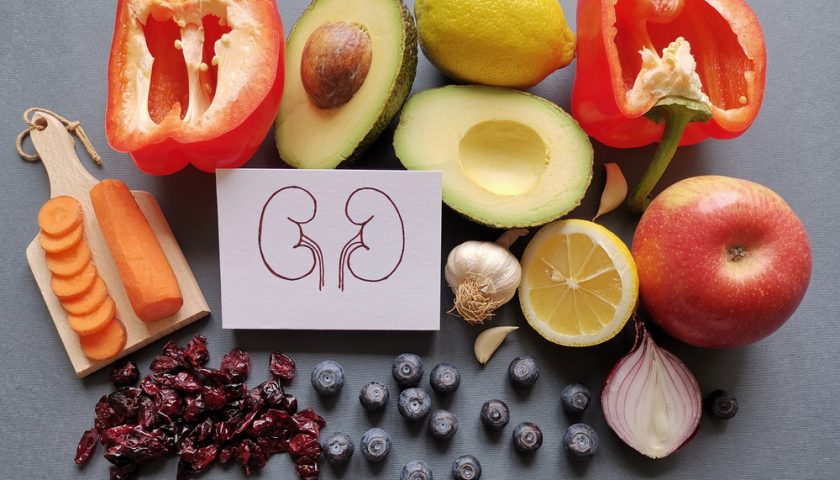Introduction
Kidney stones are a painful and recurring condition for many people. But did you know that the type of kidney stone you have directly influences the best dietary changes to prevent future stones? Each stone type forms due to different chemical imbalances and triggers, so a one-size-fits-all diet often isn’t effective. This article explains the major types of kidney stones and the tailored dietary strategies that can help reduce your risk of recurrence and support kidney health.
Understanding Kidney Stone Types and Their Dietary Triggers
The most common kidney stone types include:
- Calcium Oxalate Stones (most common)
- Uric Acid Stones
- Struvite Stones
- Cystine Stones
- Calcium Phosphate Stones
Each has unique causes, and adjusting your diet accordingly can significantly reduce the chances of developing new stones.
1. Calcium Oxalate Stones
Overview
These stones form when calcium binds with oxalate in the urine, creating crystals that can grow into stones. They account for about 70-80% of kidney stones.
Dietary Changes to Prevent Calcium Oxalate Stones
- Stay well hydrated: Drink at least 2.5 to 3 liters of fluids daily.
- Moderate oxalate intake: Limit high-oxalate foods such as spinach, rhubarb, beet greens, nuts (almonds, cashews), chocolate, tea, and soy products.
- Maintain adequate calcium intake: Aim for 1,000 to 1,200 mg of calcium daily from food (not supplements) to bind oxalate in the gut and reduce absorption.
- Limit sodium: Excess salt increases calcium excretion in urine.
- Reduce animal protein: High intake raises calcium and uric acid levels.
- Avoid excessive vitamin C supplements: High doses convert to oxalate.
Sample Foods to Limit or Avoid
- Spinach, rhubarb, beets
- Nuts and nut butters
- Chocolate and cocoa products
- Black tea and soy products
Foods to Include
- Low-oxalate vegetables: kale, cabbage, cauliflower
- Dairy products (for calcium)
- Whole grains
- Citrate-rich fruits: lemons, oranges
2. Uric Acid Stones
Overview
These stones form when urine is too acidic, causing uric acid to crystallize. They are more common in people with gout, obesity, or those consuming high-purine diets.
Dietary Changes to Prevent Uric Acid Stones
- Alkalinize your urine: Eat more fruits and vegetables to raise urine pH.
- Limit purine-rich foods: These include organ meats (liver, kidney), shellfish, sardines, anchovies, and red meat.
- Maintain hydration: Drink plenty of water to dilute urine.
- Reduce alcohol intake: Beer and spirits increase uric acid production.
- Control weight: Obesity is a risk factor for uric acid stones.
Sample Foods to Limit or Avoid
- Organ meats, red meat, shellfish
- Sardines, anchovies
- Beer and other alcoholic beverages
Foods to Include
- Fruits and vegetables (especially citrus fruits)
- Whole grains
- Low-fat dairy products
3. Struvite Stone
Overview
Struvite stones form in response to chronic urinary tract infections by bacteria that produce urease. They tend to be large and grow quickly.
Dietary Considerations
Since struvite stones are infection-related, dietary changes are less direct but still helpful for overall kidney health:
- Stay well hydrated: To flush bacteria and crystals.
- Avoid bladder irritants: Limit caffeine, alcohol, and spicy foods.
- Consume a balanced diet: To support immune health and reduce infection risk.
4. Cystine Stones
Overview
Cystine stones result from a rare inherited disorder causing excess cystine in urine.
Dietary Changes to Prevent Cystine Stones
- Drink very high amounts of fluids: More than 3 liters daily to dilute cystine.
- Limit sodium: High salt increases cystine excretion.
- Moderate protein intake: Excess protein raises cystine levels.
- Alkalinize urine: Increase fruit and vegetable intake.
5. Calcium Phosphate Stones
Overview
Less common, these stones form in alkaline urine, often linked to renal tubular acidosis or other medical conditions.
Dietary Changes to Prevent Calcium Phosphate Stones
- Limit sodium and animal protein: Both increase calcium excretion.
- Monitor calcium intake: Balanced intake from diet is recommended.
- Maintain proper hydration
- Avoid excessive use of calcium-based antacids
General Dietary Tips for Kidney Stone Prevention
- Hydration is key: Regardless of stone type, drink enough fluids to produce clear or pale yellow urine.
- Balance calcium intake: Too little or too much can be harmful; dietary calcium is preferred over supplements.
- Limit salt: Excess sodium raises calcium in urine.
- Eat a diet rich in fruits and vegetables: They provide citrate, a natural stone inhibitor.
- Maintain a healthy weight: Obesity increases stone risk.
- Avoid excessive intake of animal protein: This can increase calcium, oxalate, and uric acid in urine.
Foods That Support Kidney Health
- Citrus fruits (lemons, oranges)
- Leafy greens low in oxalate (lettuce, kale)
- Whole grains
- Nuts and seeds in moderation (low oxalate types)
- Low-fat dairy products
When to Consult a Dietitian
If you have a history of kidney stones, working with a dietitian can help tailor your diet based on your specific stone type, medical history, and lifestyle.
Conclusion
Effective kidney stone prevention starts with understanding your stone type and making dietary changes accordingly. Whether you have calcium oxalate, uric acid, struvite, cystine, or calcium phosphate stones, specific dietary adjustments can greatly reduce your risk of recurrence and support overall kidney health. Hydration, balanced nutrient intake, and moderation are the cornerstones of any kidney-friendly diet. Consult your healthcare provider for personalized guidance and regular monitoring.
FAQs:
Can diet prevent all types of kidney stones?
Yes, but dietary changes vary depending on the stone type.
Should I avoid calcium if I have calcium oxalate stones?
No, dietary calcium helps bind oxalate and prevent stones.
Which foods should be limited for uric acid stones?
Limit purine-rich foods like red meat, shellfish, and organ meats.
Is hydration important for all kidney stone types?
Yes, drinking plenty of water is essential for prevention.
Can I still eat fruits and vegetables if I have stones?
Yes, but choose low-oxalate and alkalinizing options based on your stone type.






